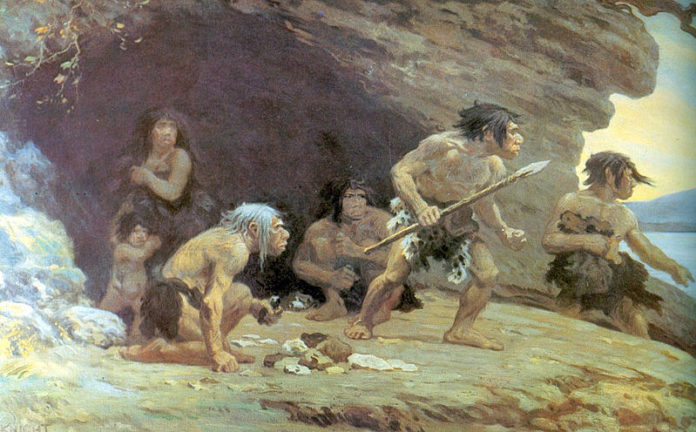Neanderthals died out around 40,000 years ago – which is about the same time that modern humans began leaving Africa and migrating to the Middle East and Europe. Understandably, people have long assumed that modern humans’ arrival in Europe led to the demise of the Neanderthals.
A new study, however, indicates that might not be the case. The scientific journal “PLOS One” published a study conducted by scientists at the Eindhoven University of Technology in the Netherlands. The results of their research suggest that inbreeding, not competition with modern humans, had led to the Neanderthals’ extinction.
The researchers ran computer models to study the effects of various factors on Neanderthal groups of different sizes (50, 100, 500, 1,000, or 5,000). Said factors included changes in sex ratios, inbreeding, changes in birth rates and death rates, and Allee effects. The last is a phenomenon in which the health of the average person declines as a population shrinks. The researchers used data from studies of present-day societies that follow a hunter-gatherer lifestyle as a basis for their model.
The models demonstrated that the Allee effects alone would lead to the extinction of any group with fewer than 1,000 individuals. Allee effects paired with inbreeding could have wiped out the entire Neanderthal species over a 10,000-year period without any input at all from modern humans.
Earlier studies had found that Neanderthals lived in small and isolated populations. From 400,000 years ago to the time of their extinction, a typical Neanderthal population consisted of 3,000 to 3900 individuals. Neanderthals thus had limited genetic diversity.
Neanderthals also often practiced inbreeding. Like Allele effects, inbreeding reduces an individual’s health and ability to reproduce. The scientists found one study that indicated that Neanderthals were 40 percent less reproductively fit than are modern humans.
The researchers speculated that if modern humans did play a role in the Neanderthals’ extinction that it wasn’t through resource competition. Instead, the arrival of modern humans could have simply exacerbated the Neanderthals’ demographic problems past the point of no return. Groups of modern humans moving into Neanderthal territory would have reduced the latter’s ability to travel and find mates outside their group. That, in turn, would have increased the effects of inbreeding on their population.



